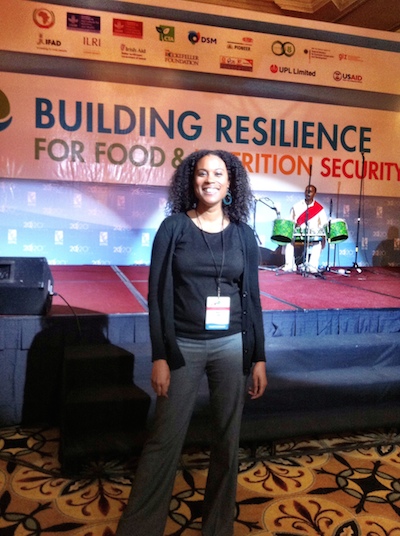
Well folks, I am happy to report that I am back safely from Addis (and this time, I have my suitcase!!!)! I realized though that I never really shared why I was in Ethiopia in the first place.
This latest trip to what is quickly becoming a home away from home was to attend the International Food Policy and Research Institute’s (IFPRI) Vision 2020 Food Security Conference.
Vision 2020 is an international development food security initiative with two main goals: a) to meet the world’s food needs while reducing poverty and protecting the environment and b) to generate an evidence base that will induce action among the many stakeholders responsible for policy change. Vision 2020 Conferences occur every 3-5 years and are centered around a particular theme, with this year’s theme being resilience.
The concept of resilience is why I first wanted to become a psychologist (at that time, I was most interested in US youth who live in urban environments), and I’ve been fortunate in my current position to help shape how development practitioners conceptualize and measure resilience within international food security and nutrition programs.
What’s been especially interesting though is how my perspective as a psychologist contributes to this dialogue. In general, there’s been a recognition of the importance of psychosocial factors in shaping food security and nutrition, but because there are VERY few actual psychologists in this field, I’ve personally found it difficult to persuade the economists and others who dominate the field of international development to adopt actual psychological theory and analytical frameworks, rather than relying on “conventional wisdom” cloaked as theory.
I will not stay on my soapbox for too long (jet lag, my friends. JET LAG!…), but I did want to share a bit about my experience, and more importantly about IFPRI and the Conference. If you’re interested in this type of work, definitely check out their website, and who knows, maybe I’ll even see you at the next Vision 2020 Worldwide meeting! 🙂
